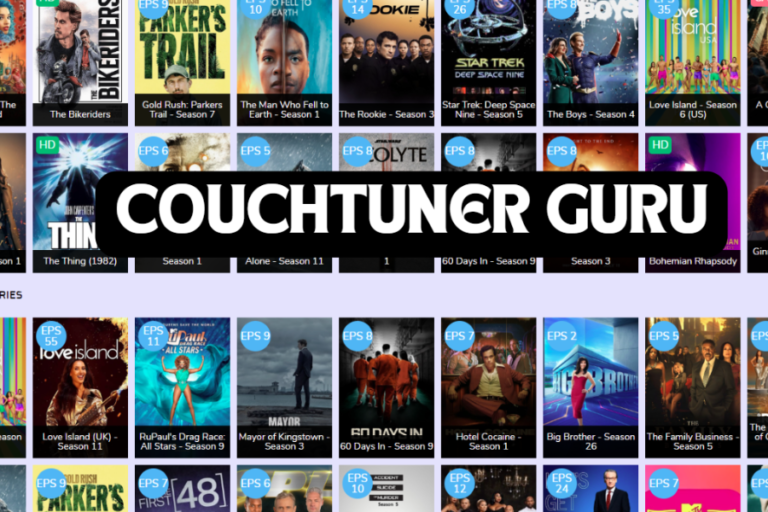https://noticviralweb.blogspot.com/2024/04/crm.html
In today’s fast-paced world, the ability to forge strong connections is more important than ever. Whether in personal relationships or professional networks, meaningful connections can lead to greater satisfaction and success. Have you ever noticed how some people seem capable of effortlessly building rapport while others struggle? The difference often lies in their approach and the tools they use.
CRM (customer relationship management) is one of the best ways businesses can improve their connections with consumers. This effective technique helps to personalize interactions that meet the needs of each individual while also streamlining communication. As companies look to expand, knowing how to use CRM becomes essential to creating enduring relationships.
Join us as we explore the various facets of building stronger connections—both personally and professionally—and discover how CRM can transform your relationship-building strategies. Let’s dive into a world where connection isn’t just an option; it’s a game changer!
Understanding CRM (Customer Relationship Management) and Its Function in Building Connections
Customer Relationship Management (CRM) is more than just a tool; it’s a strategy for nurturing relationships. At its core, CRM helps businesses understand their customers deeply. This understanding fosters stronger connections.
By gathering and analyzing data, companies may customize their interactions to each customer’s demands. All teams can easily access client information when a CRM system is properly configured and keeps it all in one location. The organization’s ability to collaborate is improved by this centralized strategy. When sales, marketing, and support teams exchange insights about client preferences, they can collaborate with ease.
Moreover, CRM systems enable timely follow-ups and personalized communication. Customers feel valued when businesses remember their previous interactions or preferences. In today’s competitive landscape, leveraging CRM effectively not only improves business operations but also strengthens bonds with customers and stakeholders alike. Building these connections is essential for long-term success in any industry.
Benefits of Using CRM for Businesses: Increased Customer Retention, Improved Communication, and Personalized Interactions
There are several advantages to putting in place a Customer Relationship Management (CRM) system, and it may completely change the way companies communicate with their clients. An important advantage is a rise in client retention. Businesses can adjust their services to meet changing needs by monitoring the preferences and actions of their customers.
Improved communication is another key advantage. With centralized data, teams can access essential information quickly, ensuring everyone is on the same page. This information flow promotes teamwork and aids in quickly resolving client concerns.
Personalized interactions stand out in today’s market. CRM systems allow businesses to gather insights about customers’ buying habits and preferences, allowing for targeted marketing campaigns. Customers are more inclined to stick with you when they feel appreciated and understood. These components work together to create an atmosphere that is conducive to greater relationships and company progress.
How to Implement CRM in Your Organization: Software Options, Training Employees, and Setting Goals
Selecting the appropriate software is the first step in implementing CRM in your company. There are numerous choices, including HubSpot, Zoho, and Salesforce. Every platform has special features designed to meet different business requirements. Consider carefully what works best for your group.
Once you have selected a CRM system, employee training is crucial. Organize workshops or training sessions that focus on navigating the software efficiently. Encourage team members to ask questions and share their ideas during these sessions.
Establishing specific goals is necessary for implementation to be successful. Clearly state your goals for your CRM, such as increasing customer retention or expediting communication. Set quantifiable objectives so that advancement may be monitored over time.
Assess how well the system accomplishes those objectives on a regular basis and make necessary strategy adjustments. Throughout the process, this continuous assessment makes sure that everyone remains motivated and in sync.
Case Studies and Illustrations of Effective CRM Use in Various Industries
The retail sector offers a noteworthy illustration of a CRM installation gone right. A well-known clothing brand adopted a CRM system to track customer preferences and purchase history. This allowed them to send personalized promotions, resulting in a significant increase in customer loyalty and sales.
In healthcare, a leading hospital implemented CRM to manage patient relationships more effectively. By automating appointment reminders and follow-ups, they improved patient satisfaction rates while reducing no-show instances.
CRM tactics have produced impressive outcomes for the tech industry as well. A software company linked CRM technologies into their support system to improve customer issue tracking. Higher client retention rates and quicker resolution times were the results of this improved communication.
These examples illustrate how various industries leverage CRM systems to enhance connections with customers while driving growth and efficiency.
Tips for Building Stronger Personal Connections Through Effective Communication and Active Listening
Effective communication is the first step in developing personal connections. Maintain eye contact and demonstrate sincere curiosity in the other person. This uncomplicated motion exudes confidence and focus.
To promote more in-depth discussions, pose open-ended questions. These questions encourage sharing and can result in more meaningful conversations rather than just yes/no answers.
Moreover, active listening is crucial. Periodically nod and utter affirmations such as “I see” or “That’s interesting.” The speaker can tell you’re interested by these cues. Refrain from cutting others off when they’re speaking. Allow them to finish expressing themselves before answering. Respect like this promotes openness and trust.
Pay attention to nonverbal cues. Lean slightly forward or use hand movements that come naturally to you, making sure they are not distracting, to demonstrate your interest with others.
Conclusion
Building stronger connections is essential in today’s interconnected world. Whether in personal relationships or professional networks, the quality of these connections can significantly impact success and happiness.
Harnessing tools like CRM opens up new pathways for understanding and reaching out to others. It helps tailor interactions, ensuring that every engagement feels meaningful and relevant.
Investing time and resources into building these relationships pays off—loyal customers and supportive friends contribute to a fulfilling life. Embracing effective communication techniques enhances not only business dealings but also personal exchanges.
The journey toward stronger connections involves continuous learning and adaptation. By staying engaged with those around us, we foster an environment where trust can flourish. This commitment transforms fleeting encounters into lasting bonds, enriching both our personal lives and professional endeavors.
FAQs
What is CRM?
Customer Relationship Management (CRM) refers to strategies or technologies used by businesses to manage interactions with customers throughout their lifecycle effectively.
How can I choose the best CRM for my business?
Assess your organization’s specific needs first; then evaluate features such as usability, integration capabilities, scalability options, and cost before making a decision.
Is employee training essential when implementing a new CRM system?
Absolutely! Proper training ensures all team members understand how to utilize the software fully, which maximizes its potential benefits within your organization’s operations.
Can small businesses benefit from using a CRM system?
Yes! Small businesses can significantly improve efficiency by utilizing CRMs tailored for smaller budgets while still accessing essential functionalities designed for growth opportunities.
How does effective communication impact relationship-building?
Effective communication fosters clarity and understanding between parties, leading to stronger, more meaningful connections. This is true in both personal and professional contexts, as clear and empathetic communication builds trust and rapport.






